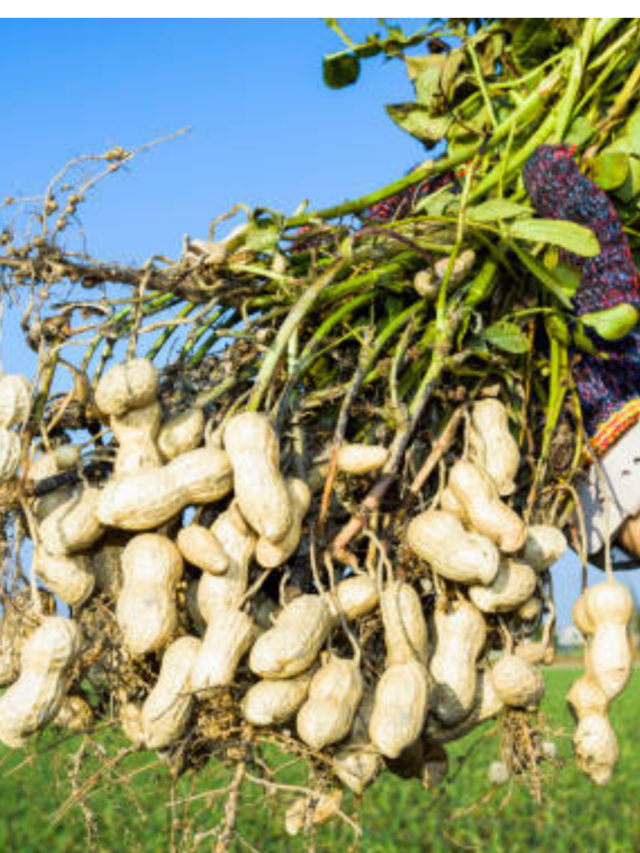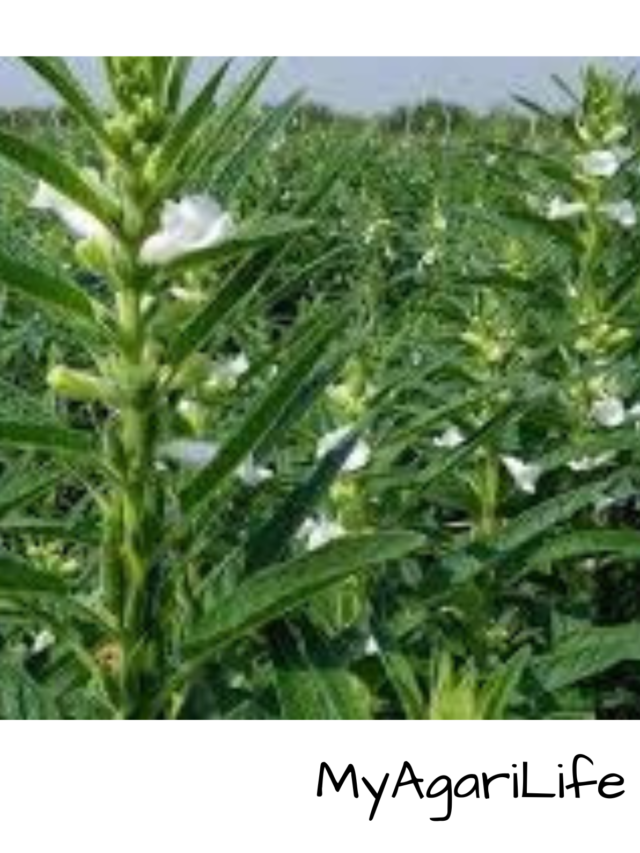1.Introduction
2.Objectives
3.Key Features
4.Implementation
5.Conclusion
Introduction
The Pradhan Mantri Fasal Bima Yojana (PMFBY) is a crop insurance scheme launched by the Government of India in 2016. It is aimed at providing insurance coverage and financial support to farmers in case of crop failure, damage, or other related risks. The scheme is implemented by the Ministry of Agriculture and Farmers Welfare, Government of India, and operates on an area approach, where defined areas are selected for insurance coverage.

The primary objective of PMFBY is to provide financial assistance and risk mitigation tools to farmers against crop losses. By offering crop insurance, the scheme aims to ensure food security, stabilize the income of farmers, and encourage them to adopt innovative and modern agricultural practices. It covers a wide range of crops including food crops, oilseeds, horticultural crops, and commercial crops as notified by the state governments.
Under PMFBY, farmers pay a nominal premium amount, and the remaining premium is shared between the central and state governments. The insurance coverage extends from pre-sowing to post-harvest stages, including localized risks. It covers yield losses due to natural calamities like drought, flood, cyclone, as well as post-harvest losses. The use of technology, such as smartphones and remote sensing, is encouraged for quick assessment of crop damages and claim settlement.
By providing financial security to farmers in the event of crop loss, PMFBY aims to reduce their debt burden and promote increased investment in modern farming techniques. The scheme also emphasizes timely settlement of claims to ensure that farmers receive assistance promptly during times of distress.
It’s important to note that the information provided above is based on the scheme’s details up until September 2021. For the most up-to-date and accurate information regarding PMFBY, it is recommended to refer to the latest official sources or government websites.
Objectives
The Pradhan Mantri Fasal Bima Yojana (PMFBY) has several key objectives. These include:

1.Financial Assistance: PMFBY aims to provide financial assistance to farmers in the event of crop failure, damage, or other risks. By offering insurance coverage, the scheme ensures that farmers receive compensation for their losses, helping them recover and stabilize their income.
2.Risk Mitigation: The scheme seeks to mitigate the risks faced by farmers due to unpredictable factors such as natural calamities, pests, diseases, or other specified perils. It provides a safety net for farmers against crop losses, reducing their vulnerability to agricultural risks.
3.Adoption of Modern Practices: PMFBY encourages farmers to adopt innovative and modern agricultural practices. By providing insurance coverage, the scheme incentivizes farmers to invest in technologies, improved crop varieties, irrigation systems, and other advancements that can increase productivity and reduce risks.
4.Food Security: PMFBY plays a crucial role in ensuring food security in the country. By safeguarding the interests of farmers and providing them with financial support during crop failures, the scheme helps maintain stable agricultural production and availability of food crops.
5.Income Stabilization: The scheme aims to stabilize the income of farmers by minimizing the impact of crop losses. By providing timely compensation, PMFBY helps farmers manage their finances, reduce debt burdens, and avoid distress sales of their produce.
Overall, the objectives of PMFBY revolve around providing financial security to farmers, encouraging adoption of modern agricultural practices, ensuring food security, and stabilizing the income of farmers. By addressing the risks and challenges faced by farmers, the scheme aims to promote sustainable agriculture and rural development in India.
Key Features
The Pradhan Mantri Fasal Bima Yojana (PMFBY) incorporates several key features to provide effective crop insurance coverage and support to farmers. These features include:

1.Premium: Farmers pay a nominal premium amount for the insurance coverage. The remaining premium is shared between the central and state governments. The premium rates are low and affordable for farmers, ensuring wider participation in the scheme.
2.Coverage: PMFBY covers a wide range of crops, including food crops (cereals, pulses), oilseeds, horticultural crops, and commercial crops as notified by the state governments. The scheme aims to provide comprehensive coverage to protect farmers against crop losses.
3.Risk Coverage: The insurance coverage under PMFBY includes various risks such as yield losses due to natural calamities (like drought, flood, cyclone, etc.), pests, diseases, and post-harvest losses. It provides financial support to farmers in case of crop failure or damage caused by specified perils.
4.Comprehensive Coverage: PMFBY provides coverage from pre-sowing to post-harvest stages, including localized risks. It covers the entire crop cycle and includes aspects such as seed treatment, sowing, harvesting, and post-harvest losses. This comprehensive coverage ensures that farmers are protected at every stage of crop cultivation.
5.Technology Integration: The scheme encourages the use of technology for quick and efficient implementation. It promotes the use of smartphones and remote sensing technology to assess crop damages and facilitate prompt claim settlement. This helps in minimizing delays and streamlining the insurance process.
6.Loan Requirement: Farmers who avail agricultural loans for notified crops are required to have insurance coverage under PMFBY. This ensures that a large number of farmers are covered under the scheme and receive financial protection against crop losses.
7.Time-Bound Settlement: PMFBY emphasizes timely settlement of claims. As per the guidelines, claims are supposed to be settled within a specific time frame, usually within 2 months of the completion of the crop cutting experiments. This ensures that farmers receive timely financial assistance during distress.
8.Awareness and Grievance Redressal: The scheme emphasizes creating awareness among farmers about the benefits of crop insurance. It also provides mechanisms for grievance redressal, allowing farmers to raise complaints or seek resolution regarding any issues faced during the insurance process.
These key features of PMFBY aim to make the crop insurance scheme accessible, efficient, and farmer-friendly. By providing comprehensive coverage, utilizing technology, and ensuring timely assistance, the scheme aims to safeguard the interests of farmers and promote a resilient agricultural sector in India.
Implementation
The implementation of the Pradhan Mantri Fasal Bima Yojana (PMFBY) involves multiple stakeholders and follows a structured process. Here are the key aspects of PMFBY implementation:
1.Ministry and Government Role: The Ministry of Agriculture and Farmers Welfare, Government of India, is responsible for the overall implementation and monitoring of PMFBY. They establish the guidelines, policies, and framework for the scheme.
2.Insurance Companies: Insurance companies play a crucial role in implementing PMFBY. They are selected through a bidding process and are responsible for providing crop insurance coverage to farmers. These companies are empaneled by the state governments and operate at the ground level.
3.State Government Involvement: State governments play an active role in implementing PMFBY. They notify the crops and areas eligible for insurance coverage, conduct crop cutting experiments, and ensure proper implementation of the scheme. The state governments also contribute a portion of the premium subsidy.
4.Premium Payment: Farmers pay a nominal premium amount for availing insurance coverage under PMFBY. The premium rates are determined based on the crop type, coverage, and other factors. The premium payment is made directly to the insurance companies or through designated channels.
5.Enrollment and Assessment: Farmers who wish to avail PMFBY coverage need to enroll themselves before the start of the crop season. The enrollment process involves providing necessary details such as landholding, crop type, and other relevant information. Insurance companies assess the eligibility and finalize the insurance coverage for enrolled farmers.
6.Crop Cutting Experiments (CCE): Crop cutting experiments are conducted by state governments or authorized agencies to assess the actual crop yield in the insured areas. These experiments help in determining the extent of crop losses and calculating the claim amounts.
7.Claim Settlement: In the event of crop loss or damage, farmers can file insurance claims with the insurance company within a specified timeframe. The claims are processed based on the crop cutting experiment data and other relevant information. PMFBY emphasizes time-bound settlement of claims to ensure timely assistance to farmers.
8.Technology Integration: PMFBY encourages the use of technology for efficient implementation. Remote sensing, smartphones, and satellite imagery are utilized for quick assessment of crop damages, monitoring insured areas, and facilitating faster claim settlement.
9.Awareness and Outreach: The scheme emphasizes creating awareness among farmers about the benefits of crop insurance. Various communication channels, such as training programs, workshops, and campaigns, are utilized to educate farmers about PMFBY and its implementation process.
Overall, the implementation of PMFBY involves coordination between the Ministry of Agriculture, state governments, insurance companies, and farmers. The involvement of multiple stakeholders ensures the effective implementation and coverage of the scheme across different regions of the country.
Benefits
The Pradhan Mantri Fasal Bima Yojana (PMFBY) provides several benefits to farmers in India. Here are the key benefits of the scheme:
1.Financial Security: PMFBY offers financial security to farmers by providing insurance coverage against crop losses. In the event of crop failure, damage, or other risks covered by the scheme, farmers receive compensation for their losses. This financial assistance helps them recover from losses and stabilize their income.
2.Reduced Debt Burden: Crop losses can often lead to farmers taking on debts to meet their financial needs. PMFBY helps in reducing the debt burden on farmers by providing timely compensation for crop losses. With insurance coverage, farmers have a safety net that protects them from financial distress and reduces their dependency on loans.
3.Increased Investment in Agriculture: PMFBY encourages farmers to invest in modern agricultural practices and technologies. By providing insurance coverage, the scheme mitigates the risks associated with farming, which in turn boosts farmers’ confidence to invest in advanced techniques, improved seeds, irrigation systems, and other agricultural infrastructure. This leads to increased productivity and income for farmers.
4.Stabilized Income: With insurance coverage under PMFBY, farmers have a certain level of income stability. Even if they face crop losses, they can rely on the insurance compensation to cover a portion of their losses and manage their finances better. This stability helps farmers in planning for the future, meeting their household needs, and avoiding distress sales of their produce.
5.Encouragement of Sustainable Agriculture: PMFBY promotes sustainable agricultural practices by providing financial support and risk mitigation tools. With insurance coverage, farmers are encouraged to adopt climate-resilient practices, sustainable water management, integrated pest management, and other techniques that contribute to long-term agricultural sustainability.
6.Food Security: PMFBY plays a vital role in ensuring food security in the country. By providing a safety net to farmers, the scheme helps maintain stable agricultural production. It ensures that farmers receive the necessary support to recover from crop losses and continue farming, thereby contributing to the availability and affordability of food crops for the population.
7.Timely Assistance: PMFBY aims for timely settlement of claims to ensure that farmers receive financial assistance promptly during distress. This helps farmers overcome the immediate financial challenges they face due to crop losses and enables them to take necessary steps for future crop cultivation.
Overall, PMFBY benefits farmers by providing financial security, reducing debt burden, encouraging investment in agriculture, stabilizing income, promoting sustainable practices, ensuring food security, and offering timely assistance. These benefits contribute to the overall welfare and development of farmers and the agricultural sector in India.
Conclusion
In conclusion, the Pradhan Mantri Fasal Bima Yojana (PMFBY) is a significant initiative by the Government of India to provide crop insurance coverage and support to farmers. With its comprehensive coverage, affordable premiums, and timely claim settlement, the scheme aims to mitigate the risks faced by farmers and ensure their financial security.
PMFBY offers several benefits, including reduced debt burden, increased investment in agriculture, stabilized income, and encouragement of sustainable farming practices. By providing a safety net for farmers against crop losses, the scheme contributes to food security and the overall welfare of farmers.
The implementation of PMFBY involves multiple stakeholders, including the Ministry of Agriculture, state governments, insurance companies, and farmers. Through technology integration, awareness programs, and efficient processes, the scheme strives to make crop insurance accessible, farmer-friendly, and effective in protecting farmers’ interests.
It’s important for farmers to stay updated on the latest guidelines and information regarding PMFBY. By taking advantage of the scheme, farmers can mitigate the financial risks associated with farming and work towards a more sustainable and prosperous agricultural sector in India.
References
The official website for Pradhan Mantri Fasal Bima Yojana (PMFBY) is maintained by the Ministry of Agriculture & Farmers Welfare, Government of India. You can find detailed information about the scheme, its features, benefits, implementation, and other relevant resources on the official website.
Here is the reference website for Pradhan Mantri Fasal Bima Yojana (PMFBY):
Website: https://pmfby.gov.in/









